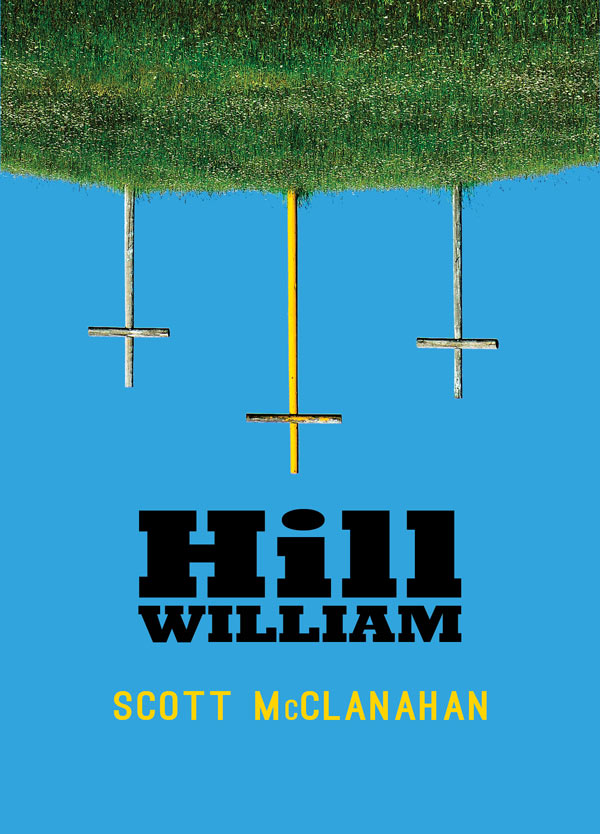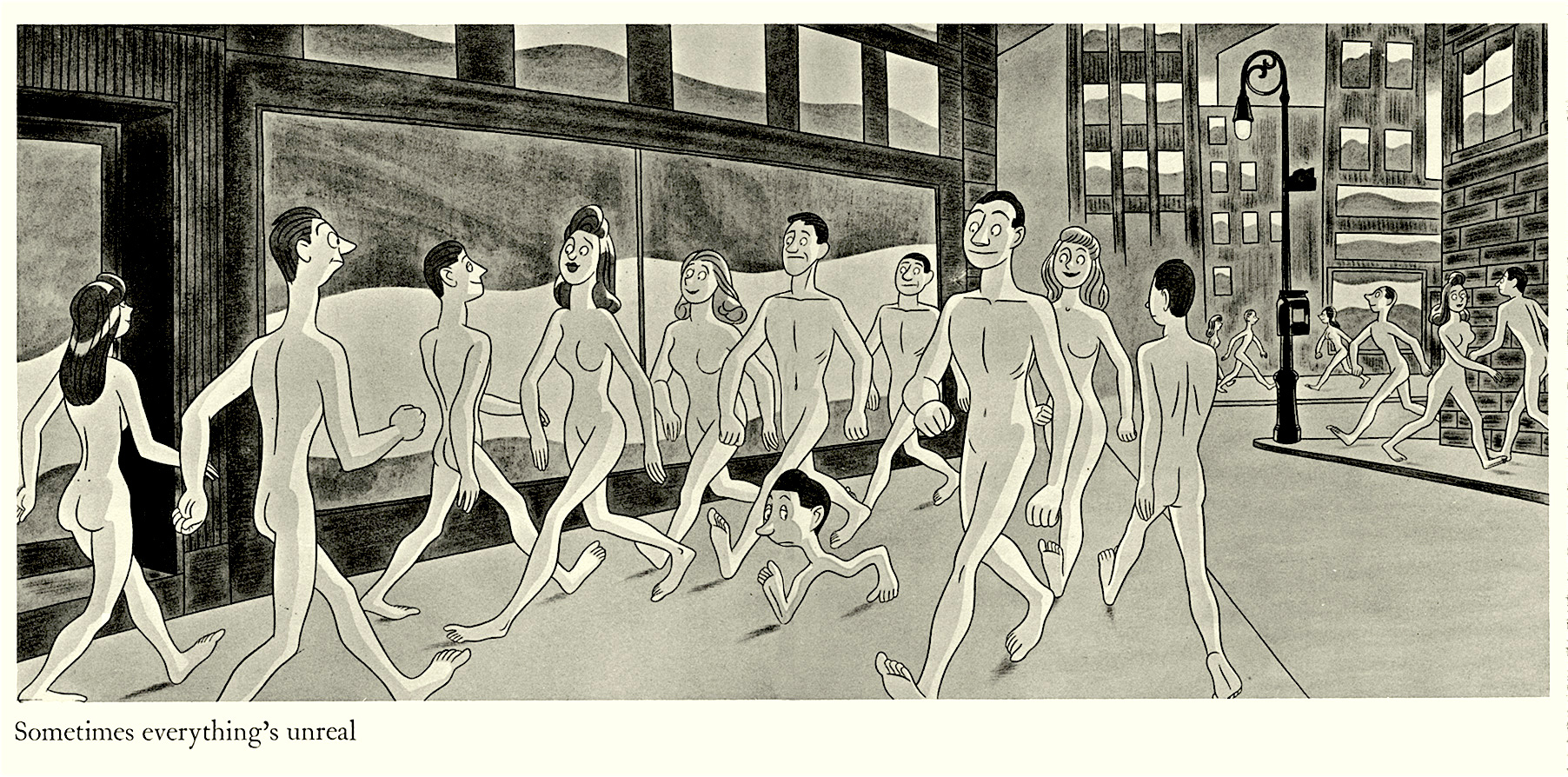【Dagmar Bürger】
Staff Picks: Road-tripping,Dagmar Bürger Heart-eating, Earth-fucking
This Week’s Reading

Danny DeVito in a still from Wiener-Dog.
I could tell you the ending of every story in Scott McClanahan’s collection Hill William, and it wouldn’t spoil a thing. His stories are all about the telling, like oral tradition captured on the page. To be honest, I don’t know the extent to which this is a book of fiction—it’s based on McClanahan’s childhood in Appalachian West Virginia, in the town of Rainelle, where he grew up, and the narrator is named Scott—but it doesn’t matter; a story is a story, whether true or invented whole cloth. McClanahan’s youthful tales swing between an outlandish realism (a guy named Bobbie B. describes how his cousin was once so lonely “he went out and fucked the earth”) and a vague religious fervor that makes sense coming from a kid who’s trying to figure out the world. In the same way, amid the characters’ grotesque behavior are transcendent moments—not least Scott’s mother, who appears indistinctly in the book, as though always off-screen, but who is a wondrous light in his life; he also finds unlikely reprieve in a church chorus: “And there was something about those voices, so ugly by themselves, but beautiful together, that seemed like the meaning of the world to me.” —Nicole Rudick
At least it’s been a good summer for road movies. First there was the dachshund picaresque Wiener-Dog, which has everything I could want from a Todd Solondz film—including a deep, dark performance from Danny DeVito as an adjunct professor at the end of his rope. Then there was the continuous, two-hour surprise of Captain Fantastic, directed by Matt Ross, with Viggo Mortensen as a Washington State survivalist who takes his kids on a bus trip to suburban Santa Fe. Don’t let the premise fool you: with each turn of the plot, this amiable family drama gains in complexity, ambiguity, and pathos. It’s hard to imagine two big indie releases that have less in common, but I loved them both. —Lorin Stein

My parents were traveling old-time musicians, and I spent the years between 1998 and 2003 traveling in that Middle American chariot, the minivan, from one folk festival to the next. At the end of this hot, long, slowly unspooling week, I was brought back to those travels by this new mixtape from Aquarium Drunkard. The mix, “weaving in and out of gnarled roots and aged forests,” features “vintage vinyl-only” folk, soul, and country songs from all over America—the West coast, Appalachia, Texas. I’ve kept it on repeat for days, pulled in right away by the first tune, a sweet hippie love song called “Seeds” from an obscure seven-inch by Melanie (of “Brand New Key” fame). Other gems include the 1971 recording of “Circuit Rider” by the folk band Lazarus, and Mattie Moultrie’s soulful “That’s How Strong My Love Is.” If the music my parents played wasn’t as polished with production shine as some of these tracks are, it certainly called on the gnarled roots or aged forests of something. —Caitlin Love
Existentialism—it’s a gas! In the forties, as Sartre cranked out Being and Nothingness and Edward Hopper put the finishing touches on Nighthawks, the cartoonist Abner Dean was rewiring the single-panel gag comic to suit his own lonely, angst-ridden ends. In his collection What Am I Doing Here?, to be reissued this fall, he draws mobs of denatured naked people (think Barbie and Ken dolls, but uglier) roaming a dismal cityscape in search of meaning. Just like regular folks, they walk, talk, fuck, dream, and eat, and no one knows why. Abner’s scenarios are especially unnerving when they involve meals. In one cartoon, a row of sad sacks sit at a luncheonette counter with funnels plugged into their mouths; a waiter dispenses slop into them from a garbage can. The caption: “Gotta eat!” In another, a man sits alone at a sprawling, swank restaurant in the middle of the desert, preparing to chow down on a heart that’s still connected to his chest: “This is good food.” You won’t laugh out loud at What Am I Doing Here?, but it will leave some small, forbidding part of you in stitches. —Dan Piepenbring

A panel from What Am I Doing Here?
In the most recent issue of The Baffler, Ben Schwartz’s “Knock Yourselves Out” uses a history of American humor to challenge one of the major myths of American culture: that the more humble a person’s origins, the more righteous is his or her claim to moral authority. Schwartz shows how rhetorically slippery this assumption can be, both on the Left and on the Right. In order to sway the American people, he writes, “You only have to convince your audience that you are the little guy, while your satirical targets represent the powerful, the elite.” You can see this strain of rhetoric on both sides of nearly every issue, going back centuries: slavery apologists and Mark Twain, for instance, both claimed a vernacular language and folksy sensibility to argue opposite points. Schwartz’s observations, which run from Ben Franklin to Amy Schumer, feel particularly vital during this election season, when we’ve seen a slurry of candidates trying to “punch up,” using their personal backgrounds as a smokescreen for actual policy details. —Sylvie McNamara
Of the five pieces in the new issue of Assignment Magazine, an annual literary journal I edit with Benjamin Nugent, my favorite is a short story by Greg Jackson, “The Park,” which is about as close in quality and style to his debut, “Wagner in the Desert,” which Lorin lauded in this space a few years ago. Like “Wagner,” “The Park” is light on plot; it loosely chronicles a weekend in which two artists, James and Frankie, lock themselves in the former’s apartment after a prolonged separation: they get drunk, get high, and avoid the how’s-life small talk by making love incessantly. Jackson seems to trust his talent at the sentence level when he eschews plot—he places his characters and their interiority at the foreground. Particularly impressive, when he’s at his best linguistically (as during the hike-on-mushrooms scene in “Wagner”), is what he’s able to do with light: “They lay there like they were floating in the river of gold that ran down the street just before townhouses opposite would eclipse the sun, the light as thick and warm as the vital chord change in a country ballad, a lament, the hinge heartache swung on.” (Next Tuesday, Assignmentwill host a reading at McNally Jackson.) —Daniel Johnson
Search
Categories
Latest Posts
Exceptionally rare radio sources detected in the distant universe
2025-06-26 05:04Toyota to sell hydrogen
2025-06-26 04:43China’s private space company LandSpace launches first liquid oxygen
2025-06-26 03:00Best vacuum mop combo deal: Save $140 on the Tineco Floor One S5
2025-06-26 02:49Featured Posts
Today's Hurdle hints and answers for May 5, 2025
2025-06-26 04:54AI Agents Explained: The Next Evolution in Artificial Intelligence
2025-06-26 04:34Temu to expand platform access to local sellers in the US · TechNode
2025-06-26 04:34Toyota to sell hydrogen
2025-06-26 04:26The Best Gaming Concept Art of 2016
2025-06-26 03:37Popular Articles
Best robot vacuum deal: Save $140 on roborock Q7 Max Robot Vacuum
2025-06-26 05:10China to take “inclusive and prudent” attitude on ChatGPT
2025-06-26 04:21TSMC sees revenue and profit decline in Q2 · TechNode
2025-06-26 04:17Chinese chip startup Biren plans Hong Kong IPO this year · TechNode
2025-06-26 03:31Dyson V8 Plus cordless vacuum: $120 off at Amazon
2025-06-26 03:07Newsletter
Subscribe to our newsletter for the latest updates.
Comments (45429)
Focus Information Network
Best portable power station deal: Save 44% on the Jackery Explorer 100 v2
2025-06-26 05:10Happiness Information Network
Indian phone market settles in Q2 with four Chinese brands near the top · TechNode
2025-06-26 04:51Pioneer Information Network
Huawei plans a 5G smartphone comeback by the end of 2023 · TechNode
2025-06-26 04:35New Knowledge Information Network
Biden administration to impose narrow limits on China tech investment by 2024 · TechNode
2025-06-26 03:43Sky Information Network
Best soundbar deal: Save $300 on the Sonos Arc
2025-06-26 02:59